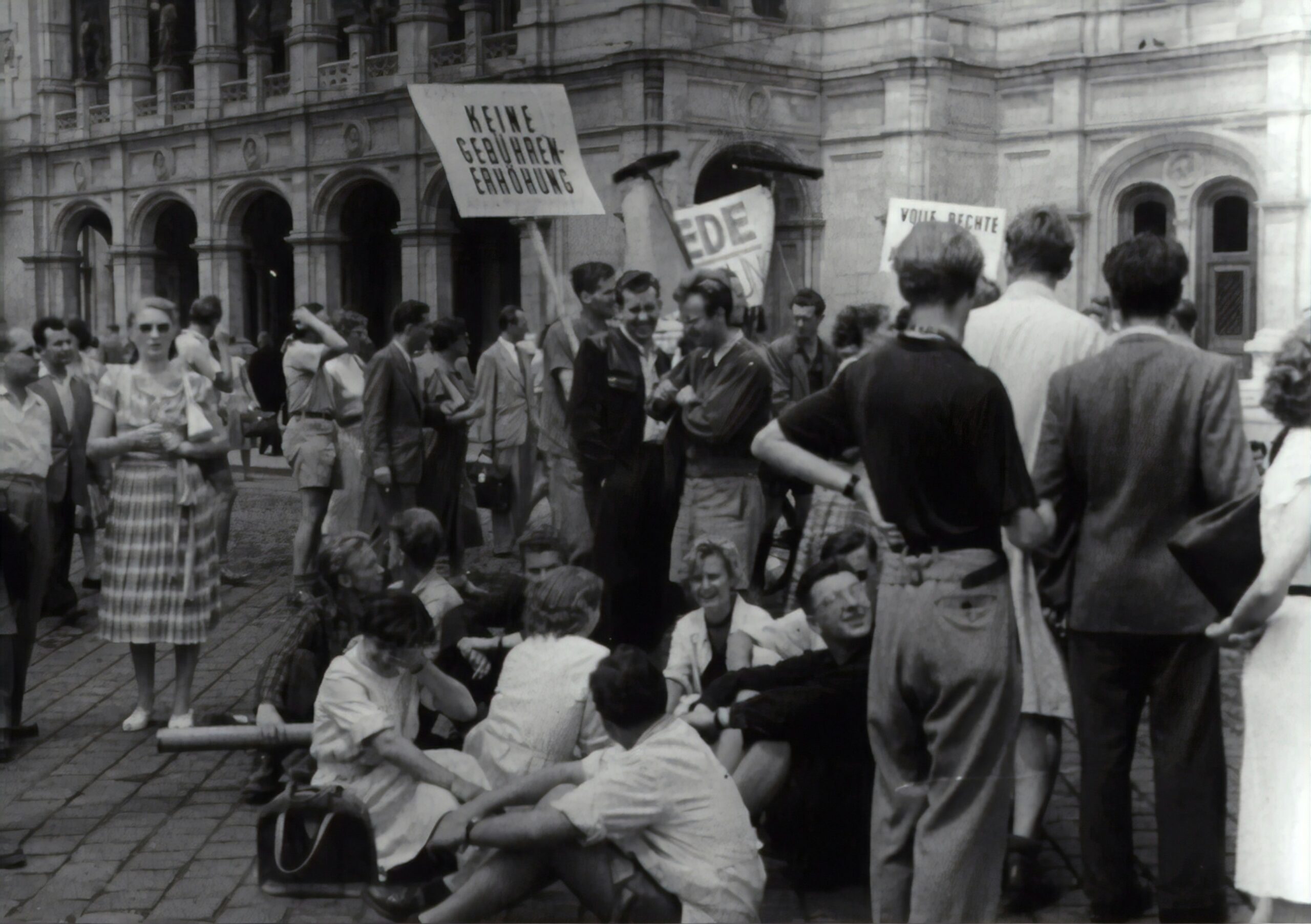Introduction to Sheikh Hasina’s Political Journey
Sheikh Hasina, a prominent figure in Bangladeshi politics, embarked on a political journey shaped significantly by her lineage and early life experiences. Born on September 28, 1947, to Sheikh Mujibur Rahman, the founding father of Bangladesh, Hasina grew up embedded in the political and socio-economic strife that marked the pre-independence era. Sheikh Mujibur Rahman’s legacy as ‘Bangabandhu’ or ‘Friend of Bengal’ profoundly influenced her political vision and ideological stance.
Her entry into the political arena was catalyzed by the tragic assassination of her father and almost her entire family on August 15, 1975. Following this national catastrophe, Hasina, living in exile, took on the mantle of leadership to continue her father’s mission. In 1981, she returned to Bangladesh and was elected President of the Awami League, one of the nation’s leading political parties. Despite navigating a landscape rife with political violence and instability, she emerged as a resolute leader, steadily reforming her party and mobilizing grassroots support.
Sheikh Hasina’s tenure as Prime Minister, beginning in 1996 and subsequently in 2009, has been marked by significant milestones and controversies. Under her leadership, Bangladesh has seen substantial economic growth, improvements in healthcare and education, and progress in women’s rights. Her administration’s efforts in digital transformation, encapsulated in the ‘Digital Bangladesh’ vision, have set a course for technological advancement and modernization.
Her leadership style is characterized by firmness and an unyielding stance against terrorism and extremism. However, her tenure has also faced criticism for issues related to human rights, press freedom, and the consolidation of power. Navigating these complexities, Sheikh Hasina remains a formidable figure in the political dynamics of Bangladesh, shaping the nation’s trajectory with a blend of visionary zeal and pragmatic governance.
Sheikh Hasina’s Tenure as Prime Minister
Sheikh Hasina has served as the Prime Minister of Bangladesh multiple times, with her terms marked by significant policy implementations and comprehensive contributions to the country’s progress. Her leadership has been instrumental in driving Bangladesh towards notable economic growth, substantial improvements in infrastructure, and impactful social reforms.
Under Sheikh Hasina’s tenure, economic rejuvenation has been a paramount focus. Her government has successfully pursued policies that have led to steady growth rates, a reduction in poverty, and increased foreign investment. The introduction of fiscal measures aimed at bolstering the private sector, coupled with initiatives to develop the agricultural and industrial sectors, has strengthened the nation’s economic backbone.
Infrastructure development has also been a key area of emphasis. Sheikh Hasina’s administration has championed the construction of major projects such as the Padma Bridge, which is poised to boost connectivity and regional trade significantly. Additionally, efforts to enhance urban infrastructure, improve transportation networks, and modernize the energy sector have been pivotal in transforming Bangladesh into a more resilient and efficient economy.
Sheikh Hasina’s approach to social reforms has brought about considerable changes as well. Her government has prioritized education, healthcare, and women’s empowerment, fostering an inclusive environment that aims to uplift various segments of the population. Initiatives like the Digital Bangladesh Vision 2021 have sought to integrate technology into all facets of life, promoting digital literacy and enhancing access to services through digitization.
Moreover, modernization efforts under her leadership have touched various sectors, from banking to public administration. The government’s endeavors in this regard have streamlined processes, improved transparency, and made governance more efficient. By driving digitization, Sheikh Hasina has not only modernized the economy but also laid the groundwork for a more technologically adept future for Bangladesh.
Controversies and Criticisms
Sheikh Hasina’s leadership has not been without controversy, attracting significant criticism both domestically and internationally. One of the most prominent allegations against her administration is the accusation of authoritarianism. Critics argue that her government has systematically eroded democratic institutions. Instances such as the alleged manipulation of the judiciary and the limiting of press freedom have been frequently cited as indicators of increasing authoritarianism.
Human rights violations have also been a major focal point in the discourse surrounding Sheikh Hasina’s leadership. Reports from various human rights organizations have highlighted instances of enforced disappearances, extrajudicial killings, and severe restrictions on freedom of expression. The government’s crackdown on political dissent has raised alarms, with opposition parties and civil society organizations claiming that these practices are aimed at silencing critics and consolidating power.
Another significant area of contention is the accusations of corruption within her administration. These allegations include high-profile cases where public funds have been misappropriated and influential political figures have engaged in corrupt practices. Despite efforts to combat corruption through various initiatives and policies, critics argue that these measures are insufficient and often selectively enforced, targeting opposition figures while shielding allies.
The opposition’s views on Hasina’s governance are starkly critical. They assert that under her rule, the democratic fabric of Bangladesh has been severely compromised. These criticisms are echoed by international observers who have expressed concerns over the state of democracy and human rights in the country. Reports from international watchdogs often highlight the increasing centralization of power and suppression of dissent as troubling trends under Sheikh Hasina’s administration.
In summary, while Sheikh Hasina’s governance has brought about significant economic and social developments, the accompanying controversies and criticisms paint a complex picture. The allegations of authoritarianism, human rights violations, and corruption remain significant points of debate, shaping both domestic politics and international perceptions of her leadership.
Protests and Public Sentiment
In recent years, Bangladesh has witnessed a surge in protests, reflecting a growing public sentiment of dissatisfaction with Sheikh Hasina’s government. These protests, diverse in their demographics and motivations, underline a complex tapestry of socio-political concerns. At the heart of these demonstrations are issues related to governance, economic disparity, and demands for greater political transparency.
The driving force behind the protests is multifaceted. A considerable portion of the protestors comprises young individuals and students disillusioned by unemployment rates and what they perceive as the lack of equitable opportunities. Additionally, allegations of corruption and human rights abuses have galvanized civil society activists and ordinary citizens into vocal opposition, demanding accountability and systemic reforms. Economic concerns, particularly inflation and the rising cost of living, have further fueled public dissatisfaction and calls for policy overhauls.
One notable aspect of the protests is the broad cross-section of society participating in these movements. Beyond the younger demographic, there are also older generations, workers, and rural communities adding their voices to the discourse. The broad demographic representation underscores a more widespread sentiment that transcends age, occupation, and geographic boundaries.
The demands of the protestors vary but center around several key issues. Chief among these demands are calls for fair elections, improved economic policies, and an end to alleged political oppression. The agitation for electoral reforms points to a perceived erosion of democratic institutions, with many citizens advocating for a more transparent and inclusive political process. Economic demands often focus on curtailing inflation and securing job opportunities, highlighting the populace’s struggle with financial instability.
The impact of these protests on Bangladesh’s political landscape is significant. They have created an urgency for the government to address these concerns proactively. The administration’s response to these protests could potentially alter its political capital, affecting both its domestic standing and international reputation. As protests persist, the government’s ability to navigate these challenges will likely shape the country’s socio-political trajectory in the coming years.
Calls for Resignation
Recent political unrest in Bangladesh has led to increasing calls for Sheikh Hasina’s resignation. These demands originate primarily from opposition parties, civil society groups, and student organizations, motivated by concerns over electoral integrity, allegations of authoritarianism, and perceived failures in governance. The protests have gained significant momentum, drawing large crowds and widespread media coverage.
The leading figures behind these calls include key leaders from the Bangladesh Nationalist Party (BNP) and its allies within the Jatiya Oikya Front coalition. Additionally, influential advocacy groups and prominent activists have vocally supported this movement, urging for a change in leadership to ensure democratic processes and transparency. The student-led protests, reminiscent of historical movements such as the 1990s anti-Ershad protests, have particularly energized and diversified the demographics of dissent.
In response, the government and Sheikh Hasina herself have maintained a firm stance against the resignation demands. The Prime Minister has frequently reiterated her administration’s commitment to stability, economic development, and national security, portraying the opposition’s actions as efforts to destabilize the country. Government statements and public addresses have highlighted achievements under Hasina’s tenure, arguing that the demands lack substantive grounds and are politically motivated.
Historical precedents in Bangladesh and other regions provide a context for understanding current dynamics. The 1996 protests leading to the fall of Khaleda Zia’s government serve as a notable example within the country, where sustained civil unrest has previously precipitated political change. Comparative analysis with other global movements, such as the Arab Spring, also underscores the potential impact of prolonged civil disobedience on entrenched political systems.
Despite the pressures, the Hasina administration’s response suggests a strategy of resilience and containment rather than concession. As the situation evolves, the political landscape in Bangladesh remains fraught with uncertainties, reflecting broader trends of contentious politics and governance challenges in the region.
Economic Implications
The political unrest in Bangladesh has notable economic implications that have far-reaching consequences on multiple fronts. Political instability often acts as a deterrent to foreign investment, which is crucial for economic growth and development. Foreign investors seek stable environments to ensure the security of their capital, and ongoing political turbulence disrupts this assurance. Consequently, a decline in foreign direct investment (FDI) becomes inevitable, leading to slower economic growth and reduced developmental projects.
Moreover, the impact on trade cannot be overlooked. Political unrest often leads to disruptions in supply chains, both domestically and internationally. In Bangladesh, the garments sector, which forms the backbone of the country’s exports, is particularly vulnerable. Any disruption can lead to delayed shipments, thereby eroding the confidence of international buyers. As a result, Bangladesh’s competitive edge in the global market is compromised, potentially leading to a loss of market share to other emerging economies.
On a domestic level, political instability hampers effective economic policymaking. When governance is in turmoil, essential economic reforms are postponed or abandoned altogether. This delays critical infrastructure projects and social programs designed to elevate living standards. In a politically volatile environment, the government’s focus tends to shift from long-term developmental goals to short-term crisis management, thereby derailing sustainable economic planning.
Political stability is, therefore, a cornerstone for sustained economic growth. Stability fosters a conducive environment for investment, ensures steady trade flows, and paves the way for sound economic policies. If the current political situation remains unresolved, Bangladesh could face substantial economic setbacks. Prolonged instability would not only weaken investor confidence and disrupt trade but also impede the implementation of necessary reforms, thereby stunting the nation’s overall economic progress.
International Reactions
The international response to Sheikh Hasina’s political situation and the ensuing protests in Bangladesh has been varied and complex. Global leaders, international organizations, and media outlets have all weighed in, offering diverse perspectives that shape the international narrative and, consequently, Bangladesh’s foreign relations.
Several global leaders have expressed concern over the political climate in Bangladesh. Statements have come from Western leaders, urging the Bangladeshi government to ensure fair and free democratic processes. For instance, the United States and the European Union have both emphasized the importance of upholding human rights and observing international democratic norms. These responses come amid reports of significant protests and allegations of political suppression.
International organizations, including the United Nations and various human rights groups, have also taken a stance. The UN has expressed its concern regarding the political unrest and the need for dialogue to resolve the conflict peacefully. Human rights organizations have highlighted issues such as freedom of speech and the treatment of protesters, placing additional pressure on Sheikh Hasina’s government to address these allegations transparently.
Global media outlets have played a crucial role in shaping the international community’s perception of Bangladesh’s current political dynamics. Outlets like BBC, Al Jazeera, and The New York Times have reported extensively on the situation, often highlighting the scale of the protests and the international calls for democratic reforms. Such extensive coverage can influence public opinion and the positioning of foreign governments in their diplomatic engagements with Bangladesh.
These international reactions bear significant implications for Bangladesh’s foreign relations. The mounting pressure from influential global entities necessitates a balanced response from Sheikh Hasina’s administration. While seeking to maintain domestic stability, the government must also navigate the diplomatic challenges posed by the international community’s scrutiny, thus directly impacting Bangladesh’s position on the global stage.
The Future of Bangladesh’s Political Landscape
As Bangladesh navigates the intricate political waters ahead, several potential scenarios could unfold, each with significant implications for the nation’s future. One pivotal aspect is the future of Sheikh Hasina’s leadership. Given her long tenure, speculation around her possible resignation or reforming her policies frequently surfaces. Any move towards either of these possibilities could redefine the political dynamics in Bangladesh. Potential successors within her party, the Awami League, are likely already being groomed to ensure a smooth transition, should she opt to step down.
The opposition, primarily led by the Bangladesh Nationalist Party (BNP), continues to play a crucial role. Despite its current weakened state, any resurgence could significantly impact the political equilibrium. Should the opposition strengthen, it might lead to more robust democratic processes, fostering a healthier political environment. Alternatively, prolonged weakness within opposition ranks could consolidate Hasina’s party’s hold over the political landscape, potentially leading to fewer checks and balances.
Prospects for democratic processes in Bangladesh largely depend on political willpower for reforms and greater transparency. Electoral processes, judicial independence, and media freedom are key areas that require diligent attention. Strengthening these democratic institutions can pave the way for more inclusive governance and societal trust in political mechanisms.
National stability and progress hinge on how effectively future leaders address pressing socioeconomic issues. Policies aimed at reducing poverty, improving healthcare, and advancing education will be crucial. Building resilient infrastructure and fostering economic diversification can further contribute to sustained national development. Social cohesion and addressing disparities across different regions and communities are equally important to ensure holistic national advancement.
In conclusion, the future of Bangladesh’s political landscape is contingent upon several interlinked factors. Leadership transitions, the vitality of opposition forces, and the robustness of democratic institutions will collectively shape the trajectory of the nation. Through judicious governance and strategic reforms, Bangladesh can aspire towards a future marked by stability and progressive growth.



